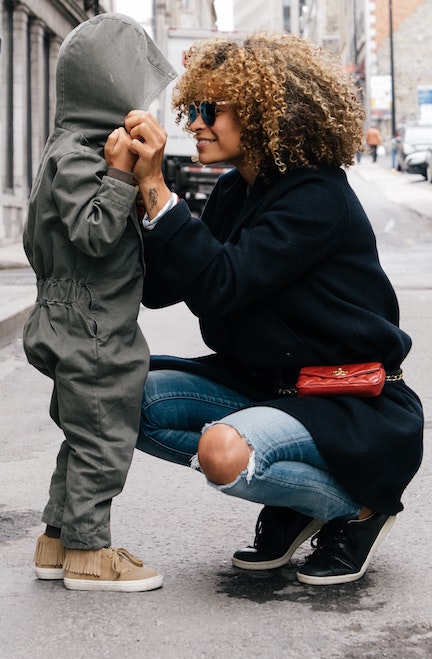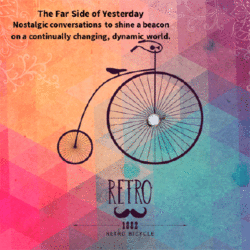
Photo by Sai De Silva on Unsplash
In today’s climate of anguished hopelessness, fearless optimism is vital. The current trend is to disdain what you hear; an acknowledgment that it may be fake news, a conspiracy, a ruse or a lie.
Never doubt that words and ideas can change the world. Indeed, it is the only thing that ever has.
Mindfulness falters because it is difficult to remain aware of your thoughts and feelings and not be consumed by them. Only a true optimist grasps onto the promise that even if the road is pitted at least it is leading somewhere and when you arrive, someone will be waiting.
It is not easy to ban negative thoughts; tussling with them only makes them worse and struggle brings no joy and rarely any reward. The best you can do is label them as possibilities and not facts.
Such melancholy thoughts flourish because we are sharing the stage right now with a pandemic determined to engulf the world. Many communities are experiencing panic, fear worry, and suffering. Stress has been unleashed like a nuclear explosion.
What now? Can this unprecedented time transform the selfish, power-seeking and malicious behavior surrounding us and allow the deeply ingrained instinct to help, support and protect those we care, depend and rely upon to emerge as a united, compassionate and kinder human race?
I find myself filled with hope at the tenacity, courage and selflessness of all the amazing people who have stepped up, even at their own peril, to put others first. Stepping up to the plate when the game depends on you is not just a difficult choice, it is a brave decision. In the face of hopelessness, it is also the necessary choice if we are to find a balance between belief or despair and hope or fear.
At the same time, we have seen a contagion of kindness that appears to be bonding us as a community, a society and a world. Kindness offers shelter for the wounded, weary from far too many confrontations. Kindness is the golden chain that bonds us together. Unexpected kindness is the most powerful, least costly, and most underrated agent of human change.
Kindness touches life in all its detail. A small kindness can bring a big result but a sincerely ambitious kindness can change the world. Kindness, freely available to all who wish to practice it, vastly increases the effectiveness of your efforts in a way that seems almost mystical.
Let kindness choose what you say, for once your words are said, they cannot be recalled. While many words fall on deaf ears, careless words can wrongly harm someone’s life. Your words, even if intended to be supportive, have consequences if they are misunderstood as a call to arms, an affront or dismissive.
But be aware that silence can be highly unethical – if not dangerous. Silence should not deceive, allowing others to believe what we know for certain is not true. We must speak out in the face of injustice, abuse and wrongdoing. We implicitly know when it is morally unacceptable to remain silent and the moment to stop second-guessing our gut and speak up; to “speak truth to power.”
Don’t assume no one knows the content of the thoughts you conceal in your mind. The quality of your thoughts creates the quality of your life. If your head is filled with positive thoughts, there is no room for hatred. When confronted with injustice, silence is a toxic strategy.
As William Faulkner once said, “Never be afraid to raise your voice for honesty and truth and compassion against injustice and lying and greed. If people all over the world … would do this, it would change the earth.”
The appreciation of kindness is the genesis of wisdom.
Those thoughts and deeds instilled as part of you are those that recur over and over until they root deep in your soul, throw out roots that spring up as new formations. Being kind is not a sign of weakness but strength. If you can do a single act of kindness once, you can do it again.
Satiate your relationships with kindness and candor to crowd out conflict. The positive energy of kindness flowing among friends blocks negative energy and prevents harmful vibes from infusing precarious situations. How good it feels to be kind!
Time is randomly elusive, creeping maddingly or accelerating along the fast track. Be cognizant of how you spend each exquisite moment with which you have been so richly blessed. There is so very much for which to live. Whether it’s stinging regrets or joyful triumphs, find the value there, accept it and move resolutely in a positive direction. Shrug off any lingering envy, anger or despair.
Too often we forget to be kind to ourselves. Often, we look, but refuse to see; we listen, but not ever hear; we exist, but never feel. Success is tenuous if we don’t already have our own love, acceptance and compassion. Honor the unique gifts that you alone can give. Life craves for all you have to offer and is waiting for you to plunge into the bona fide experience of living and giving it your all.
Compassion is about giving all the love that you’ve got.
Kindness is intrinsic to us. When we expose vulnerably in moments of fear, we affirm that we are alive and that we are enough. When that happens, we can still the cries and heed the necessities of those around us as kinder, better and more empathetic people. Human kindness strengthens the stamina and toughens the fiber of a free people.
A nation does not have to be cruel to be tough.
We can’t help everyone, but everyone can help someone. Do things for people not because of who they are or what they do in return, but because of who you are. So, the next time you find yourself in that state of fear, confused about which way to turn, don’t stay quiet, don’t suffer in silence! Raise your hand and ask for help. Be honest, keep asking, and don’t give up until you find what you need.
Keep moving instinctively through opening paths toward one another.
One admonition that, if not heeded, can disrupt any advancement and restart past disastrous cycles, dropping us off at the same place of pain and frustration at which we started.
You must listen to what is being said to you. It may be the grace that saves us all.
My wish for you is that you continue to demand equity. Continue to be who and how you are, to astonish a callous world with your acts of kindness. Continue to permit humor to lighten the burden of your caring heart. To err on the side of kindness is rarely an error. It is never too soon to share kindness, for you never know how soon it will be too late (Ralph Waldo Emerson.)
Remember there’s no such thing as a small act of kindness. Every act creates an infinite ripple that will not be depleted of its vitality or strength, but will wear well and be remembered long after the dissonance and din of inequity has faded.
Sing a song of hope. Let everyone write a line and add to the melody.
“An individual has not started living until he can rise above the narrow confines of his individualistic concerns to the broader concerns of all humanity.”—Martin Luther King, Jr.





